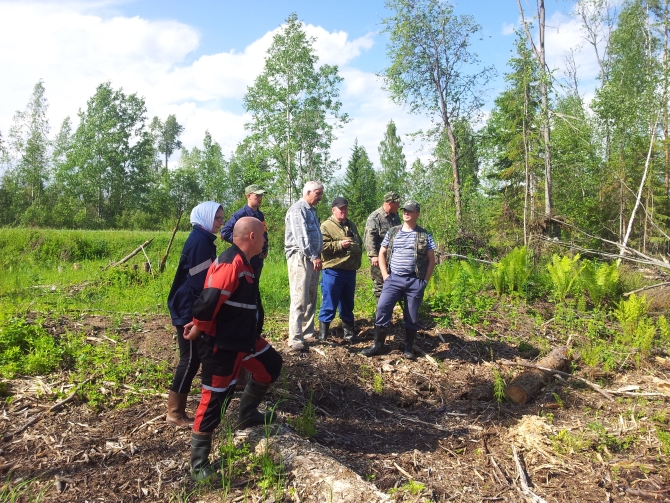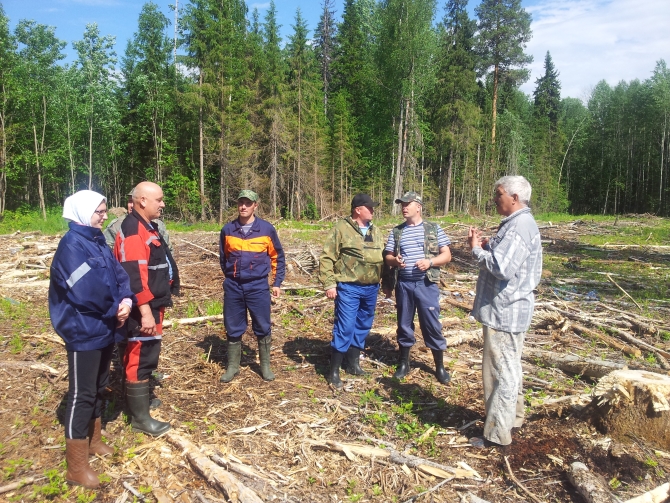LZK Lunvozh LLC Employees Learned from Own Mistakes
Silver Taiga Foundation has held a three-day seminar-consultation for the Lunvozh LLC employees.
Lunvozh is a small logging enterprise with an annual felling volume of about 200 thousand cubic meters in the Kirov district. Located in the city of Murashi, Lunvozh LLC has a lease base not only on the territory of the Kirov region, but also in two forestry units of the Komi Republic – Letskoye and Priluzskoye. The company has its own sawmill plant and supplies pulpwood to the Ilim Group enterprises and Mondi Syktyvkar. Therefore, availability of FSC certificate is especially important for it.
In spite of the fact that the company has already been holding this international certificate for a long time, it requires consulting services. The company cannot always meet the stringent principles and criteria of FSC certification and, accordingly, the auditors issue Corrective Action Requests (shortly, CARs).
According to the Foundation ecologist Nikolay Shuktomov, having preliminary visited five company’s logging sites – during the preparation for the consultations – they have not detected any flagrant violations. And yet, there are some problems. First of all, they refer to the biodiversity conservation, as well as establishing connections and cooperation with the stakeholders – local residents, NGOs. These were the points especially stressed during the consultations.
It should be noted that last year the Silver Taiga Director Yury Pautov had already conducted a seminar for the Lunvozh loggers, but it had been a theoretical course on the certification principles and criteria. This time the consultations were held directly on the logging sites. Engineers and technicians, fellers, and operators of Lunvozh LLC got an opportunity to learn from “own mistakes” – on the basis of the logging sites they had harvested at different times.
At the end of the seminar, all participants passed the “exam” – filled in the test based on the materials studied in the classroom, as well as specific features and techniques used for biodiversity conservation during the logging activities planning and fulfillment they had seen on the logging sites. According to the feedback from the courses participants, such practical seminars are much more efficient than regular classroom presentations and lectures. Therefore, the company’s management is planning to continue holding similar field courses in the future.




